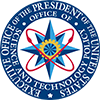Our Program Areas
The Center for Knowledge Diffusion (CKD) has been organized to promote educational access by reducing barriers to opportunity across five substantive areas: (1) impact analysis of activities related to knowledge diffusion; (2) higher education patenting and licensing activities; (3) talent development; (4) higher education finance as it pertains to student retention and access; and, (5) school policy research. These research domains are connected by a commitment to create avenues for the realization of potential. By integrating meaningful mentoring opportunities for students, researchers, and faculty, we actively promote the diffusion of knowledge across multiple disciplines.

| Impact Analysis of Research Collaborations
| Advisory Committee
|
The Center for Knowledge Diffusion (CKD) in collaboration with Resources for the Future (RFF) has received a prestigious award from the National Aeronautics and Space Administration (NASA) to Measure Research Performance in Space Station Research. In addition, the CKD is actively researching academic patenting activities because we are concerned about the implications of commercialization for the ethos of the university. As market forces become more centrally involved with the conduct of science, the means of research production and dissemination are also affected. The extent to which the administration of the nation's scientific research programs effects the reorientation of norms of science to align with market forces is a focus of the Center’s research initiatives. At the same time, the Center for Knowledge Diffusion recognizes the pivotal roles that the industrial and commercial sectors play in the ultimate application of federally funded basic research. As such, the CKD exists to both examine and promote research collaborations. The Center is a conduit by which students, mentors, and researchers can meaningfully enhance their creative and scientific pursuits.
In addition to investigations involving academic patenting, the CKD is concerned about the implications of commercialization for the ethos of the university. As market forces become more centrally involved with the conduct of science, the means of research production and dissemination are also affected. The extent to which the administration of universities and the norms of science are reoriented to align with market forces is a focus of the Center’s research initiatives. At the same time, the Center for Knowledge Diffusion recognizes the pivotal role that the industrial sector plays in the ultimate application of federally funded basic research. As such, the Center for Knowledge Diffusion exists to both examine and promote research collaborations. The Center is a conduit by which students, mentors, and researchers can meaningfully enhance their creative and scientific pursuits.
See related publications |
 |
Patenting and Licensing Activities |
Advisory Committee
|
As the recipient of a major competitive grant from the National Science Foundation, Dr. Clements has been research patenting and licensing activities at universities around the world [LINK]. As the principal investigator of this study, she has undertaken a comprehensive analysis of complex systems involving international processes of knowledge diffusion. The Science of Science Policy program that awarded this grant to Dr. Clements is an NSF program that operates under the auspices of the Office of Science and Technology Policy of the Executive Office of the President of the United States. Her longitudinal study, Mapping the International Evolution of Collaboration Networks on Patents Granted to Universities Around the World, is a data driven analysis of globalization. The findings of this study are providing substantive information that may be of use to organizations and science and technology policymakers in designing and implementing policies for knowledge diffusion and innovation.
See related publications |

| Mentoring and Talent Development |
Advisory Committee
|
The Center for Knowledge Diffusion believes that mentoring and coaching are critical components to the development and fulfillment of possibility. To this end, the Center for Knowledge Diffusion and its Board of Directors are actively involved in student development pursuits in multiple domains. Most recently, the Center for Knowledge Diffusion has been supporting master classes for string quartets to help promote ongoing professional development for talented performers of classical music. Below is an overview of the main areas of research within this domain.
Master Teachers and World Class Talent
All members of the Board of Directors have been committed to mentoring and talent development at a world-class level. Throughout his career, Professor Horner has coached chamber music ensembles to bring their playing to the highest possible level. He has recently returned from Mexico, Romania, Hungary, France, Germany, the Czech Republic, and the United Kingdom where he was invited to conduct master classes at conservatories, academies, and festivals. In addition, the Center and its Executive Board members actively conduct research in this area. The Center’s Director Dr. Clements, was co-principal investigator of a longitudinal research project that examined internationally renowned master teachers and coaches in several fields of endeavor such as the performing arts, athletics, chess and mathematics. In concert with this research on the development of world-class talent, this research focused on a sample of public school teachers who have been distinguished for their excellence in teaching. A major premise of this study was that world-class performance and achievement in the arts, athletics and other fields is most commonly the outcome of extended, deliberate development directed by master teachers and coaches toward protégés during critical periods of development.
Mentoring and the Doctorate
As part of the Carnegie Initiative on the Doctorate, certain members of the advisory committee have been involved in examinations of doctoral programs in education. These studies were part of a national initiative to lend transparency to the opaque process of obtaining a doctorate across many disciplines. The results of these studies revealed practices and experiences that both hinder and promote doctoral degree completion at research universities. Furthermore, the analyses revealed gender, cultural and programmatic differences in access to, and satisfaction with, mentoring relationships between doctoral students and faculty.
See related publications |
| |
 |
School Policy Research |
Advisory Committee
|
The Center for Knowledge Diffusion works to improve the schooling for the nation’s children. We do that by working with teacher education programs, future teachers, school districts, teachers, and policy makers. We are involved in making the curriculum more approachable so students can learn. Below is an overview of the main areas of research within this domain. Early Literacy Development. Dr. Clements was a founding research team member of a research study that examined the Indiana Early Literacy Intervention Grant Program--a program that funded a total of 133 projects and served 9,685 students in its first year. This research resulted in several government reports that analyzed the efficacy and efficiency of the program relative to its goals. |
| |
Public Opinions and Political Contexts of Education. This research examined the interrelationship between public opinion and policy contexts for educational improvement and reform. It reviewed trends in public opinions about education policy issues and compared them to educators’ opinions about similar issues; it examined how the context for education policy decisions has changed over the past two decades; and, it considered different ways of viewing the interrelationship between public opinion and policy decisions within school districts and school buildings. This research had important implications for public relations in schools with regard to current political conditions.
See related publications |
|
 |
Higher Education Finance
|
Advisory Committee
|
Student Loans and Grants. The Center for Knowledge Diffusion will continue to examine higher education policies that focus on the effects of prices, loans and grants and their relationship to higher education opportunity. Currently, Professor John Thelin is finalizing a book on the rising costs of college and the economics of higher education. The book will be published in 2012. Members of its Board of Directors have utilized models quantitative logistic models developed by Edward P. St. John and Patricia Somers to examine within-year persistence in four different academic years. These studies assessed the effects of student aid on persistence. Examining the student loan industry from both domestic and international perspectives is also a focal interest of the Center.
See related publications |
Future Research Activities
The Center for Knowledge Diffusion draws on a broad base of analytical techniques. Additionally, it draws on the international experiences, intellectual insights, as well as personal drive of its Board of Directors to understand and promote myriad avenues through which societies can stimulate the maximization of human potential. Research at the Center has found that academic patents and scholarly article outputs provide an interesting framework through which complex social systems can be analyzed. This work involves local, regional, national and international actors in multiple sectors whose interactions can determine economic opportunities for disparate groups of people, societies, and ideas. Likewise, these interactions play an important role in the fulfillment of human potential. This 501(c)3, will continue to examine and analyze different dimensions of academic cooperation and collaboration across many disciplines. In addition, it will actively promote the diffusion of knowledge in creative, scientific, and sociological realms by linking people with the resources they need at critical times. It is a specific goal of the center to reduce the roadblocks that hinder the realization of potential.








